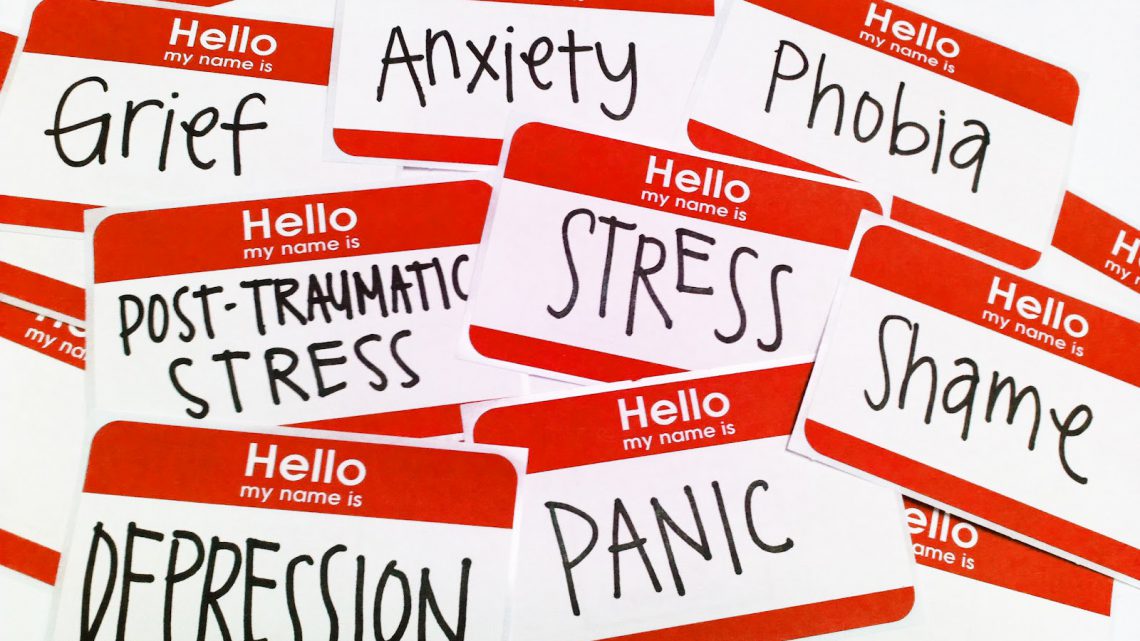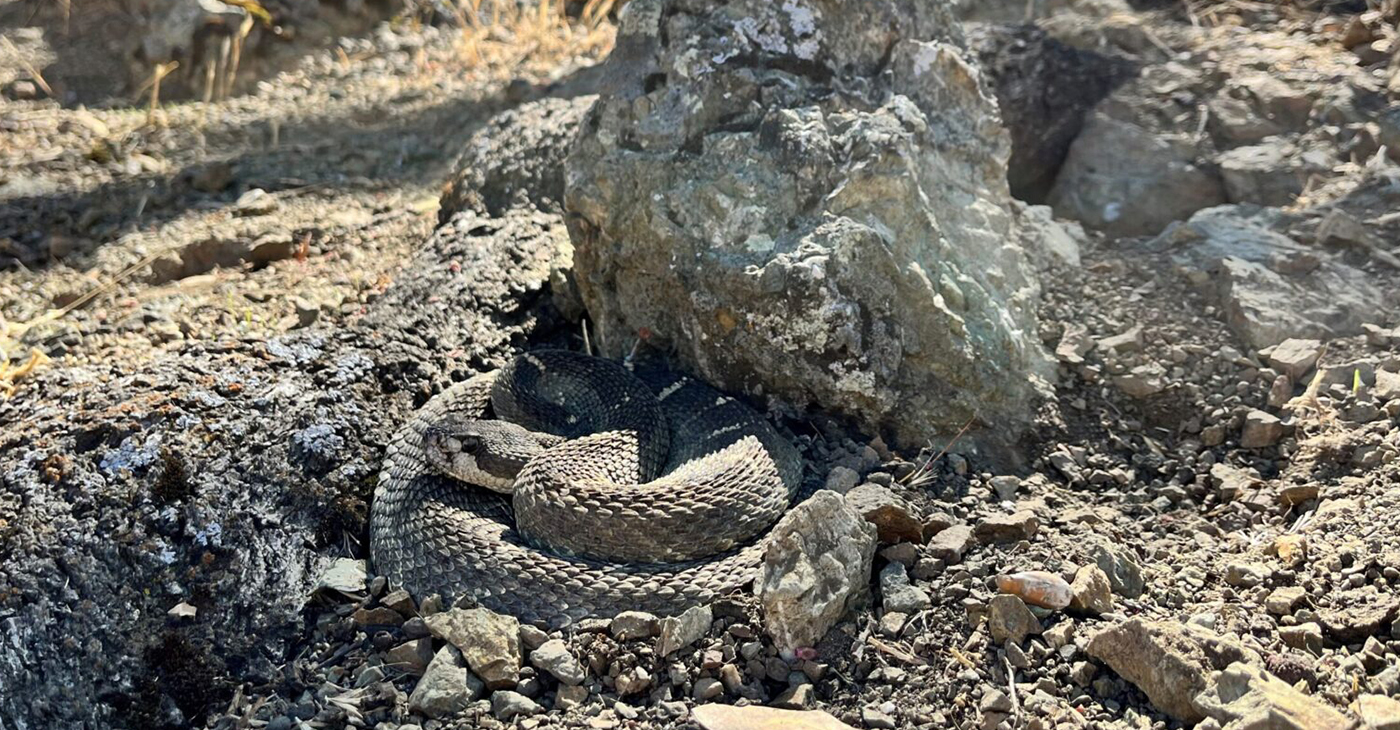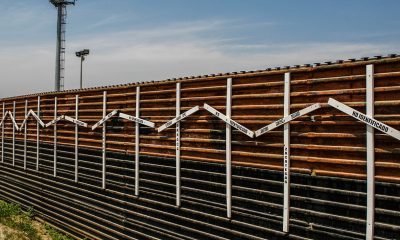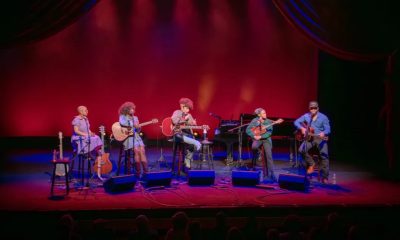Bay Area
Opinion – Coronavirus and Your Mental Health

What happened to living for the weekend? Where did hump day go? When will sports return? When will these kids return to school? Where can I buy toilet paper? When will life return to normal? When will I be able to return to work? These and so many other questions have been looming in our consciousness (minds) for more than six weeks. We all know that the coronavirus has significantly impacted our lives.
At the beginning of this pandemic, it was rumored that the Black community was not being impacted, but within weeks we witnessed many African Americans being diagnosed, treated and dying due in part to health disparities.
Very simply, the lack of access to health care, some living without health insurance or being minimally insured, having diabetes, obesity, cardiovascular disease, asthma, and the impact of racism and cultural biases in medicine are just some of the factors that have impacted our physical and mental health outcomes.
Fears of transmitting the coronavirus have most of us unable to escape the grim reminders of the deaths and infections that have touched African Americans. We know that as the virus increases, so does our anxiety. We begin to worry or become concerned if we or one of our loved ones or friends will be infected. Most of us are unable to be tested and if we are tested, many of us are concerned about the slow turn-around in obtaining results. Testing in underserved communities is slim to none right now.
During these times, it is important to try to stay in the present and not think about the worst thing that could happen. Try to figure out exactly what and how you are feeling (e.g. scared, stressed, fearful, sad, helpless, or angry). Anxiety and feeling distressed is our body’s biological reaction to a threat and the Coronavirus is a real threat especially when we are not able to control our daily lives.
Some symptoms that you might pay attention to include: change in sleep pattern, overeating, over-drinking, increasing drug use or unhealthy behaviors, feeling irritable, or wanting to just escape. For the most part, we are social animals and connecting with others helps us thrive.
Below are some common sense, easy-to-follow recommendations.
1. Maintain a schedule for the household with flexibility.
2. Stay up to date on all COVID-19 information. Listen to the doctors and scientists. Limit the amount of COVID-19 news you watch!
3. Focus on positive aspects of your life and things that you can control.
4. Seek social support from family members and/or friends and maintain social connections (e.g. Facetime, Zoom, Skype, Calls, making Tik Toks, etc.)
5. Engage in relaxation techniques and exercise.
6. Eat healthily.
7. If you are feeling overwhelmed, seek support from a mental health provider. In today’s world, you don’t even have to leave your home, Tele Psych is available. Telepsychology will allow you to access a licensed provider in the comfort of your home or other personal space. It is convenient, prevents missed appointments and may encourage those in our community concerned about the stigma of mental health to seek the help they need to “rise up” to life’s challenges facing us today.
Lenore A. Tate, Ph.D. is a licensed psychologist in private practice in Sacramento, Ca. She has previously worked as principal consultant to the California Assembly and Senate Health Committees as well as the Senate Office of Research. For further information, see www.Lenoretate.com or email at: DRTATE20@gmail.com.
Activism
S.F. Black Leaders Rally to Protest, Discuss ‘Epidemic’ of Racial Slurs Against Black Students in SF Public School System
Parents at the meeting spoke of their children as no longer feeling safe in school because of bullying and discrimination. Parents also said that reported incidents such as racial slurs and intimidation are not dealt with to their satisfaction and feel ignored.

By Carla Thomas
San Francisco’s Third Baptist Church hosted a rally and meeting Sunday to discuss hatred toward African American students of the San Francisco Unified School District (SFUSD).
Rev. Amos C. Brown, president of the San Francisco NAACP and pastor of Third Baptist Church, along with leadership from local civil rights groups, the city’s faith-based community and Black community leadership convened at the church.
“There has been an epidemic of racial slurs and mistreatment of Black children in our public schools in the city,” said Brown. “This will not be tolerated.”
According to civil rights advocate Mattie Scott, students from elementary to high school have reported an extraordinary amount of racial slurs directed at them.
“There is a surge of overt racism in the schools, and our children should not be subjected to this,” said Scott. “Students are in school to learn, develop, and grow, not be hated on,” said Scott. “The parents of the children feel they have not received the support necessary to protect their children.”
Attendees were briefed last Friday in a meeting with SFUSD Superintendent Dr. Matt Wayne.
SFUSD states that their policies protect children and they are not at liberty to publicly discuss the issues to protect the children’s privacy.
Parents at the meeting spoke of their children as no longer feeling safe in school because of bullying and discrimination. Parents also said that reported incidents such as racial slurs and intimidation are not dealt with to their satisfaction and feel ignored.
Some parents said they have removed their students from school while other parents and community leaders called on the removal of the SFUSD superintendent, the firing of certain school principals and the need for more supportive school board members.
Community advocates discussed boycotting the schools and creating Freedom Schools led by Black leaders and educators, reassuring parents that their child’s wellbeing and education are the highest priority and youth are not to be disrupted by racism or policies that don’t support them.
Virginia Marshall, chair of the San Francisco NAACP’s education committee, offered encouragement to the parents and students in attendance while also announcing an upcoming May 14 school board meeting to demand accountability over their mistreatment.
“I’m urging anyone that cares about our students to pack the May 14 school board meeting,” said Marshall.
This resource was supported in whole or in part by funding provided by the State of California, administered by the California State Library via California Black Media as part of the Stop the Hate Program. The program is supported by partnership with California Department of Social Services and the California Commission on Asian and Pacific Islander American Affairs as part of the Stop the Hate program. To report a hate incident or hate crime and get support, go to CA vs Hate.
Bay Area
Mayor London Breed: State Awards San Francisco Over $37M for Affordable Housing
On April 30, Mayor London N. Breed announced San Francisco has been awarded more than $37.9 million in funding from the California Department of Housing and Community Development (HCD) as part of the State’s Multifamily Housing Program (MHP). The HCD loan will provide the final funding necessary for development of Casa Adelante – 1515 South Van Ness, a 168-unit affordable housing project located in San Francisco’s Mission District.

By Oakland Post Staff
On April 30, Mayor London N. Breed announced San Francisco has been awarded more than $37.9 million in funding from the California Department of Housing and Community Development (HCD) as part of the State’s Multifamily Housing Program (MHP).
The HCD loan will provide the final funding necessary for development of Casa Adelante – 1515 South Van Ness, a 168-unit affordable housing project located in San Francisco’s Mission District.
The new development at 1515 South Van Ness Ave. will provide 168 affordable homes to low-income families, formerly homeless families, and persons living with HIV earning between 25-80% of the San Francisco Area Median Income (AMI).
In addition, the project is anticipated to provide family-friendly amenities and ground floor community-serving commercial spaces that preserve the prevailing neighborhood character of the Calle 24 Latino Cultural District.
“This funding unlocks our ability to move on building affordable housing units for families in San Francisco at a crucial time. We understand the level of need for more housing that is accessible, and like the state, the city continues to face a challenging budget cycle,” said Breed. “1515 South Van Ness is a good example of what can be achieved in San Francisco when you have strong community partnerships and an unwavering commitment to deliver on critical needs for our residents.”
“From the beginning of my term as Supervisor, I have fought to bring affordable housing to 1515 South Van Ness” said Supervisor Hillary Ronen. “In the interim, the site has been utilized for homeless services and shelter, and I am thrilled that HCD has recognized the value of this development, and we are finally ready to break ground and bring 168 affordable homes to low income and formerly homeless families in the Mission.”
Owned and occupied by McMillan Electric Company until 2015, the City and County of San Francisco purchased 1515 South Van Ness Avenue in June 2019 with the intent of developing new affordable housing.
In November 2020, the San Francisco Mayor’s Office of Housing and Community Development (MOHCD) released a Multi-site Request for Qualifications (RFQ) seeking qualified developers to build affordable housing on the site, and subsequently selected Chinatown Community Development Corporation (CCDC) and Mission Economic Development Agency (MEDA) in May 2021 to develop the site.
The project is expected to begin construction in winter 2025.
“A strong, long-term push by Mission advocates to make this site 100% affordable is now paying off, with 168 family units that include services and childcare. People of color communities know what they need, and we are excited to be in partnership with a team, consisting of MEDA, CCDC, and MOHCD, that listens,” said Malcolm Yeung, Executive Director at CCDC.
“We are excited to be in partnership with CCDC, yet again, and for the opportunity to develop intergenerational affordable housing in the City’s Mission District,” said Luis Granados, executive director at MEDA.
Increasing housing affordable to lower-income and vulnerable residents is a key priority in the City’s Housing Element which calls for additional funding for affordable housing production and preservation, as well as Mayor Breed’s Housing for All Executive Directive that sets out the steps the City will take to meet the bold goal of allowing for 82,000 new homes to be built over the next eight years.
Tuesday’s funding announcement emphasizes the importance of regional and state collaboration in order to reach our housing and climate goals.
“We are thrilled—not just to bring a project of this size to a community with great need — but to do so with community-based developers and their partners who understand the neighborhood and sensitivities around cultural preservation,” said HCD Director Gustavo Velasquez.
Bay Area
East Bay Regional Park District Issues Rattlesnake Advisory
The East Bay Regional Park District released an advisory today on rattlesnakes, which emerge from winter hibernation in early spring and become more active. Warm weather can bring more potential for rattlesnake encounters with humans and dogs, particularly along trails and roads.

The Richmond Standard
The East Bay Regional Park District released an advisory today on rattlesnakes, which emerge from winter hibernation in early spring and become more active.
Warm weather can bring more potential for rattlesnake encounters with humans and dogs, particularly along trails and roads.
Visitors are encouraged to avoid hiking alone in case of an emergency, to scan the ground ahead as they walk, jog or ride, stay on trails avoiding tall grass, and to look carefully around and under logs and rocks before sitting down. Keep your dog on your leash to be extra safe, park officials said.
If you encounter a rattlesnake, leave it alone – it is unlawful to capture or harm one. Move carefully and slowly away or around it and give it plenty of space, park officials said.
Those who are bitten by a rattlesnake are instructed to stay calm by lying down with the affected limb lower than the heart, then having someone call 911.
Getting medical attention is critical.
Those bitten should not use tourniquets, “sucking,” or snake bite kits. If you are by yourself, walk calmly to the nearest source of help to dial 911, do not run.
If bitten by any other type of snake, wash the wound with soap and water or an antiseptic and seek medical attention.
Not sure what bit you? Check the bite for two puncture marks (in rare cases one) associated with intense, burning pain, which is typical of a rattlesnake bite. Other snakebites can leave marks without associated burning pain.
The Northern Pacific rattlesnake is the species found in East Bay Regional Parks. Snakes are important to the natural environment, helping to control rodents and other reptile populations. But enjoy them from afar.
For more information, download the Park District’s Common Snakes brochure or watch our Gopher Snake or Rattlesnake video to learn how to tell the difference between rattlesnakes and gopher snakes. Additional information is available at ebparks.org/safety/wildlife-encounters.
-

 Community3 weeks ago
Community3 weeks agoFinancial Assistance Bill for Descendants of Enslaved Persons to Help Them Purchase, Own, or Maintain a Home
-

 Business3 weeks ago
Business3 weeks agoV.P. Kamala Harris: Americans With Criminal Records Will Soon Be Eligible for SBA Loans
-

 Activism4 weeks ago
Activism4 weeks agoOakland Post: Week of April 10 – 16, 2024
-

 Community3 weeks ago
Community3 weeks agoAG Bonta Says Oakland School Leaders Should Comply with State Laws to Avoid ‘Disparate Harm’ When Closing or Merging Schools
-

 Activism2 weeks ago
Activism2 weeks agoOakland Post: Week of April 24 – 30, 2024
-

 City Government3 days ago
City Government3 days agoCourt Throws Out Law That Allowed Californians to Build Duplexes, Triplexes and RDUs on Their Properties
-

 Community2 weeks ago
Community2 weeks agoRichmond Nonprofit Helps Ex-Felons Get Back on Their Feet
-

 Community2 weeks ago
Community2 weeks agoOakland WNBA Player to be Inducted Into Hall of Fame
























































